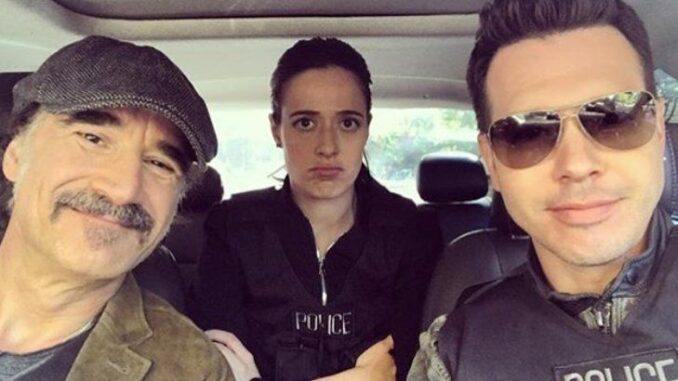
The Day Chicago P.D. Lost Its Soul
Not all TV deaths are created equal. Some exist purely to shock. Others go deeper—they leave scars that reshape an entire series. The death of Alvin Olinsky on Chicago P.D. was one of those rare, devastating moments. It wasn’t just the loss of a beloved character. It was the emotional collapse of the show’s moral compass. For many fans, that episode marked the exact moment Chicago P.D. transformed from a gritty cop drama into something far more human—and tragic.
Olinsky Was More Than a Cop
Alvin Olinsky was never the loudest in the room. He didn’t chase the spotlight or deliver over-the-top speeches. But in every glance, every pause, every grizzled sigh—he carried decades of wisdom and unspoken pain. He was a quiet pillar of strength. Loyal, steady, and deeply principled, especially when it came to Hank Voight. Their bond was more than professional—it was brotherhood forged in fire. So when Olinsky died, it wasn’t just a character leaving. It was a foundational crack in the world of Chicago P.D.

The Death That Broke the Team—and the Fans
What made Olinsky’s death so haunting wasn’t the act itself—it was how understated it was. No dramatic farewell. No final words. Just a brutal prison stabbing, a hospital scene, and silence. When Voight gets the news, the camera doesn’t cut away. We watch the grief hit him like a collapsing building. He doesn’t scream. He doesn’t cry. He simply folds in on himself. That quiet devastation spoke louder than any explosion ever could. It was one of the finest acting moments in the series—and Jason Beghe delivered it with heartbreaking restraint.
Loyalty or Betrayal? The Moral Collapse
Olinsky didn’t die because he was careless. He died because he was loyal. He took the fall for a murder Voight committed. He kept silent. Protected his friend. And in doing so, sealed his own fate. The tragedy wasn’t just that he died—it’s that he died believing in someone. That belief cost him everything. And it forced fans to ask: when does loyalty stop being noble and start becoming a slow, quiet betrayal?
The Fallout: A Team Without Its Heart

After Olinsky’s death, nothing was the same. Voight grew colder, more volatile. Ruzek became reckless. Atwater hardened. Upton pulled further into herself. There was a vacuum in the unit—a space no new recruit could ever fill. Because Olinsky wasn’t just a part of the team. He was the one who made the team human. He listened. He guided. He grounded the chaos. Without him, Intelligence became something darker.
Elias Koteas Gave Us Something Rare
Behind the badge was Elias Koteas—a quiet powerhouse of performance. He didn’t act with flair or theatrics. He embodied Olinsky. The way he moved, spoke, even stood—all of it made the character feel deeply lived-in. Real. Tragic. Familiar. He gave us a character who didn’t need to be flashy to be unforgettable. And when he left, he took something irreplaceable with him.
A Ghost That Never Left
Even seasons later, Olinsky’s shadow still lingers. The writers didn’t erase him. They let the pain breathe. Every time Voight visits the grave. Every time someone mutters, “He died for you.” Every time Voight hesitates before crossing the line—Olinsky is still there. A silent reminder of what was lost. And who they all used to be.
Some Characters Don’t Fade—They Echo
Olinsky wasn’t just a character. He was history. He was the memory of where Intelligence came from. He was the conscience in a world drowning in gray. That’s why fans still write tribute posts. Still create TikTok edits. Still comment “Bring him back.” Because you don’t move on from a character like Olinsky. You carry him with you.
Final Thoughts
In losing Olinsky, Chicago P.D. didn’t just tell a powerful story—it asked hard questions. What does loyalty really cost? Can justice exist when it breaks everything else? And when your moral compass dies, who do you become?
For many of us, Olinsky was the emotional core of the show. And even now, long after his final scene, his presence still echoes through every broken look, every silent pause, every rule that Voight bends—and breaks.
